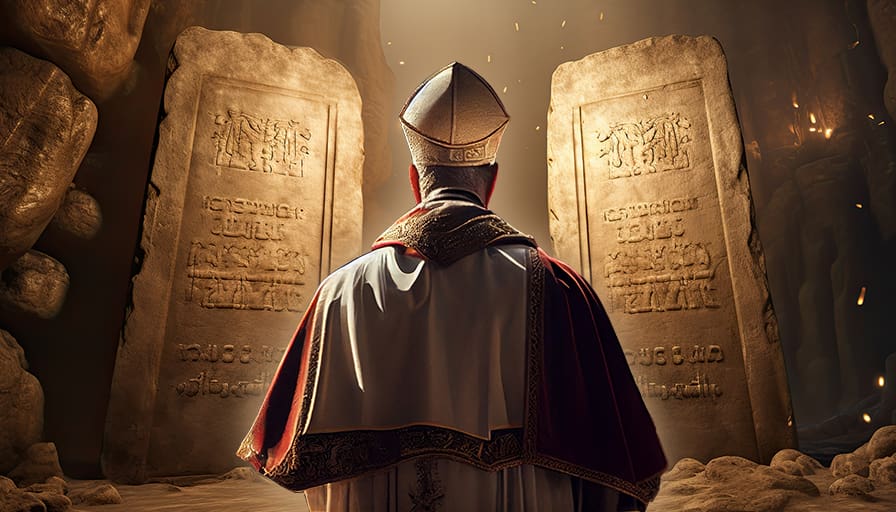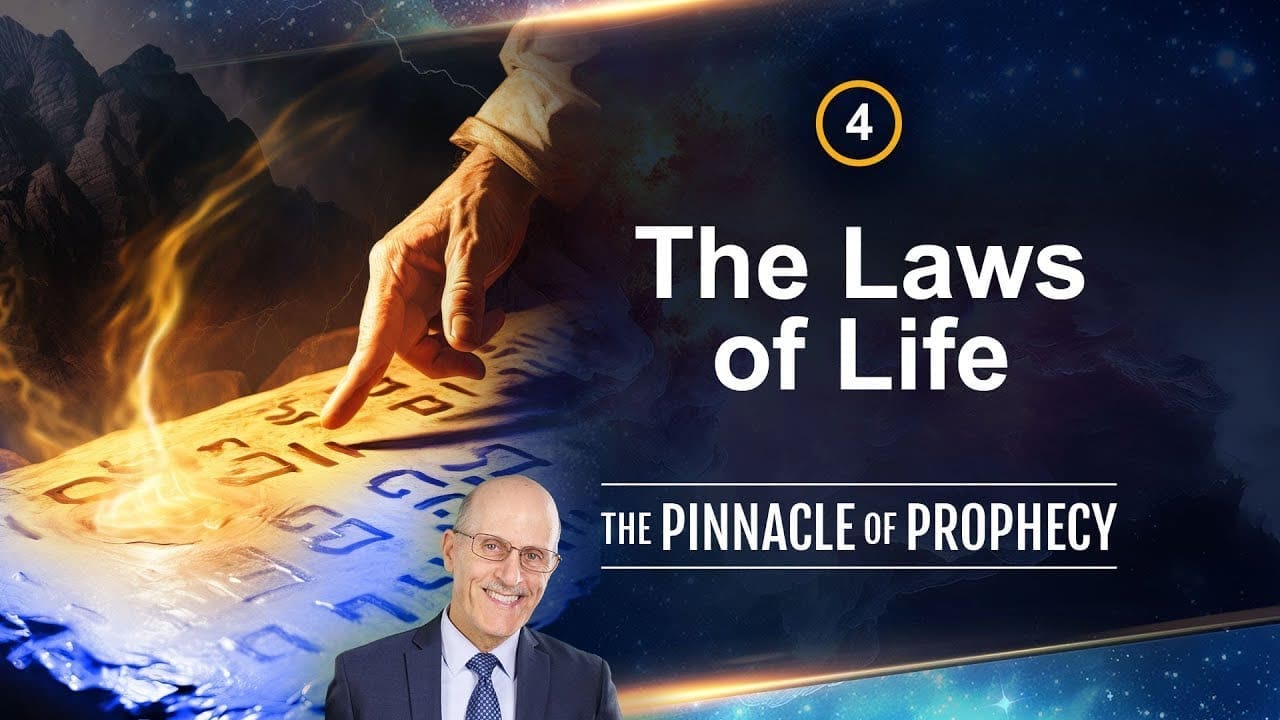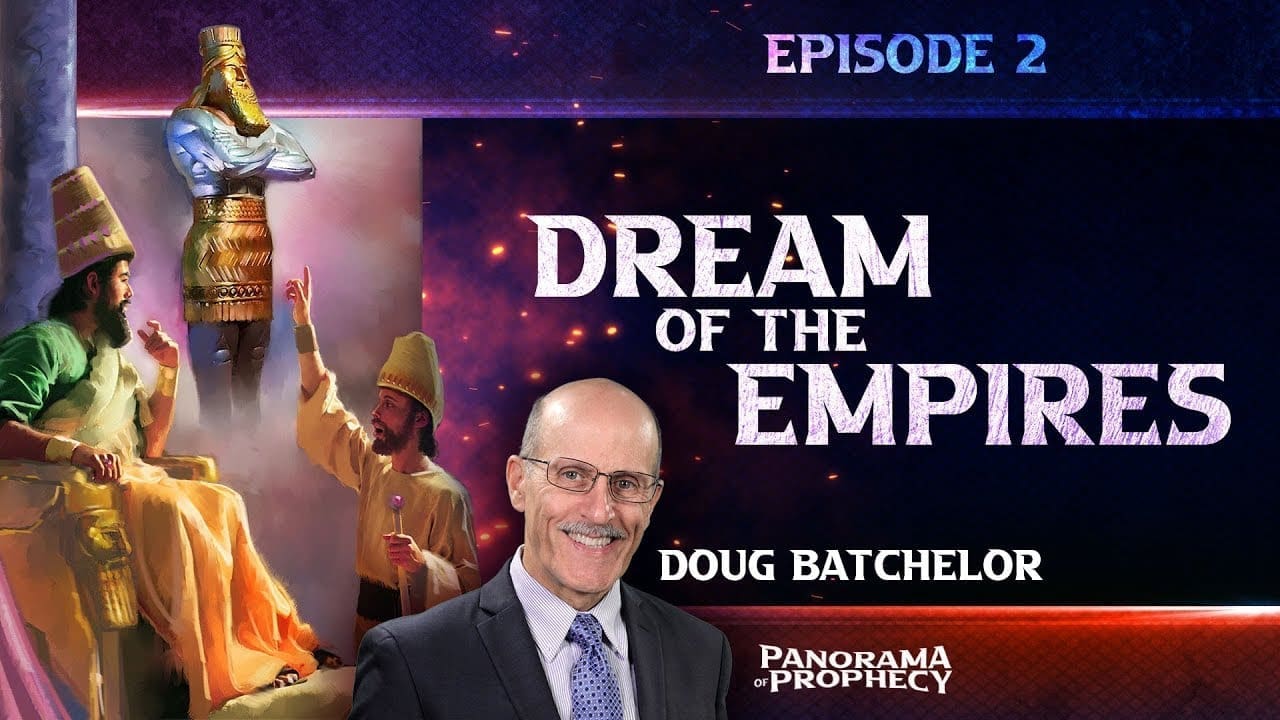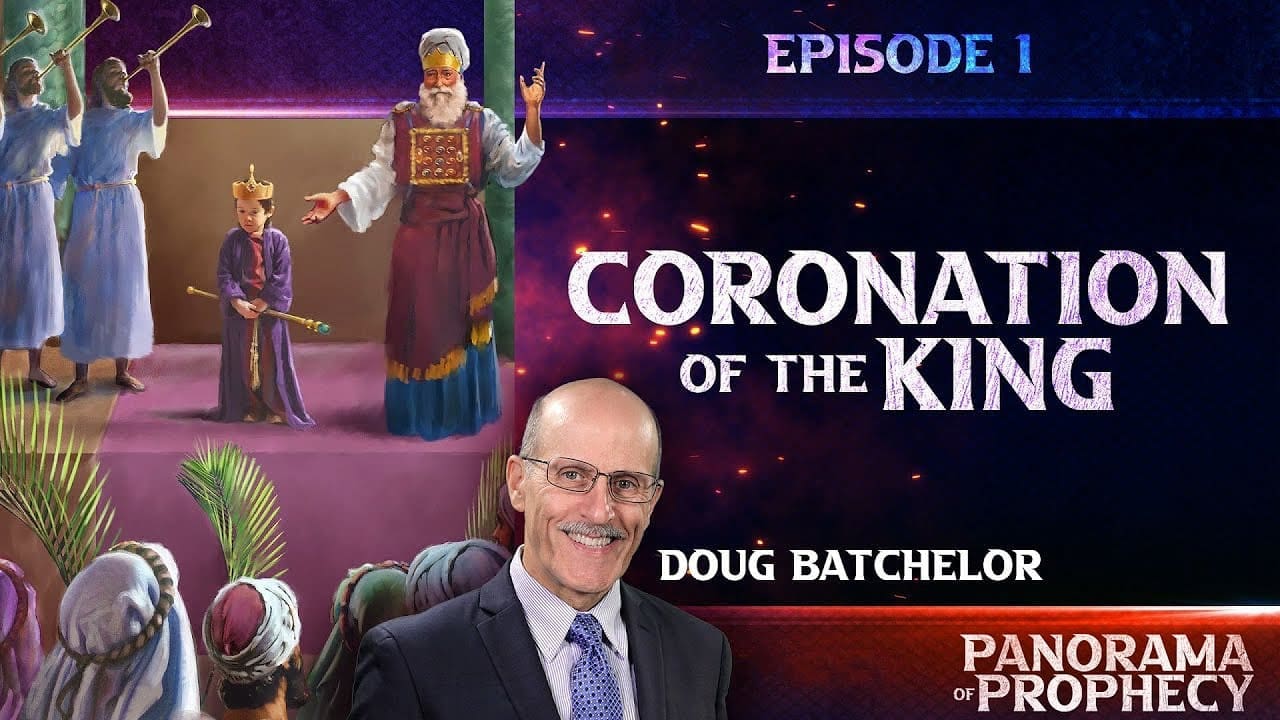Most religions have laws or principles that they uphold as standards that their followers should adhere to. The Christian faith is no different. Jesus made it clear that there are standards when He stood on the mountaintop to deliver the sermon that was recorded in Matthew 5 to 7. However, are the Ten Commandments in the New Testament?
“Let no one deceive you by any means; for that Day (the 2nd coming of Christ), will not come unless the falling away (apostasy) comes first, and the man of sin is revealed, the son of perdition, who opposes and exalts himself above all that is called God, or that is worshipped, so that he sits as God in the temple (church) of God, showing himself that he is God . . . The coming of the lawless one is according to the working of Satan, with all power, signs, and lying wonders, and with all unrighteous deception among those who perish, because they did not receive a love of the truth, that they might be saved,” (2 Thessalonians 2:1-10)
New Testament Passages Condemning Violations of the Commandments
Mark 7:21-23 says,
“For from within, out of the heart of men, proceed evil thoughts, adulteries, fornications, murders, thefts, covetousness, wickedness, deceit, lasciviousness, an evil eye, blasphemy, pride, foolishness: All these evil things come from within, and defile the man.”
This passage condemns breaking the sixth, seventh, eighth, ninth, and tenth commandments in the New Testament.
Romans 13:9 iterates a similar sentiment to the above passage. It states,
“For the commandments, “You shall not commit adultery,” ”You shall not murder,” “You shall not steal,” “You shall not bear false witness,” You shall no covet,” and if there is any other commandment, are all summed up in this saying, namely, “You shall love your neighbor as yourself.”
The focus in this New Testament passage seems to reiterate the last five of the Ten Commandments.
Additional Commandments Reaffirmed by Paul
1 Corinthians 6:9-10 records,
“Do you not know that the unrighteous will not inherit the kingdom of God? Do not be deceived. Neither fornicators, nor idolaters, nor adulterers, nor homosexuals, nor sodomites, nor thieves, nor covetous, nor drunkards, nor revilers, nor extortioners will inherit the kingdom of God.”
Galatians 5:19-21 tells us,
“Now the works of the flesh are manifest, which are these; Adultery, fornication, uncleanness, lasciviousness, idolatry, witchcraft, hatred, variance, emulations, wrath, strife, seditions, heresies, envyings, murders, drunkenness, revellings, and such like: of the which I tell you before, as I have also told you in time past, that they which do such things shall not inherit the kingdom of God.”
Both these passages contain the commandments regarding idolatry in the New Testament. This is a reference to the first four of the Ten Commandments.
The Fifth Commandment in the New Testament
Ephesians 6:1-3 says,
“Children, obey your parents in the Lord: for this is right. Honour thy father and mother; (which is the first commandment with promise;) That it may be well with thee, and thou mayest live long on the earth.”
This is the 5th commandment reiterated in the New Testament.
Are the First Four Commandments Missing?
Only the last six of the Ten Commandments are expressly called commandments in the New Testament. Does that mean we can break the first four commandments because they are not as explicitly there?
The answer is no. Even the first four of the Ten Commandments are in the New Testament.
The First Commandment in the New Testament
John the Baptist announced, “Behold! The Lamb of God who takes away the sin of the world!” (John 1:29). Jesus said, “Seek first the kingdom of God and His righteousness” (Matthew 6:33). The author of Hebrews told us to look unto Jesus, “the author and finisher of our faith” (Hebrews 12:2). This is placing God before anything else which is the principle of the first commandment.

The Second Commandment in the New Testament
Paul addresses the second commandment in the New Testament by talking of those who have professed to be wise but become fools because they,
“…changed the glory of the incorruptible God into an image made like corruptible man—and birds and four-footed animals and creeping things. Therefore God also gave them up to uncleanness, in the lusts of their hearts, to dishonor their bodies among themselves, who exchanged the truth of God for the lie, and worshipped and served the creature rather than the Creator, who is blessed forever. Amen.” (Romans 1:23-25)
The Third Commandment in the New Testament
The New Testament addresses the third commandment when Jesus told His disciples how to pray. He said our prayers should start with, “Our Father in heaven, Hallowed be Your name (Matthew 6:9).” Peter emphasizes the importance of the name of the Lord in the Christian life when he said, “And it shall come to pass that whoever calls on the name of the Lord shall be saved.”
Peter ensured that we understood that the name of Christ was equivalent to the name of God when he declared,
“Let it be known to you all, and to all the people of Israel, that by the name of Jesus Christ of Nazareth, whom you crucified, whom God raised from the dead, by Him this man stands here before you whole. This is the ‘Stone which was rejected by you builders which has become the Chief Cornerstone.’ Nor is there salvation in any other, for there is no other name under heaven given among men by which we must be saved” (Acts 4:10-12).
Thus, when we use the name of the Lord Jesus Christ by calling ourselves Christians, we are to do so with meaning and purpose, just as the third commandment tells us to.
The Fourth Commandment Most Visible in the New Testament
Of the first four commandments, the fourth commandment is the most explicitly and frequently represented in the New Testament.
The fourth or Seventh-day Sabbath commandment is mentioned across 54 verses in the New Testament – in the Gospels, the book of Acts and once in the book of Revelation.
Jesus’ Teachings About the Sabbath
Let’s look at what some of those verses are:
Jesus tells the Pharisees the Sabbath is about showing mercy (Matthew 12:3-7)
Jesus tells us that He is “the Lord of the Sabbath” – or in other words, the Sabbath is the Lord’s day (Matthew 12:8)
Jesus demonstrates and says that it is lawful to heal and care for those in trouble on the Sabbath day (Matthew 12:10-12)
- Jesus tells His followers that they should pray that at the fall of Jerusalem (AD 70 – well after Jesus was gone to heaven) the Christian church should pray that it not happen on the Sabbath (Matthew 24:20). Thus, he expected that Christians would continue to keep the Sabbath in the future.
Jesus’ Example of Sabbath Keeping
In the great act of the Godhead, the sacrifice of Christ, Jesus rested in the grave on Sabbath. Jesus died for and as all humanity on the Friday. (The Bible writers knew Friday was Preparation Day because it was about preparing for the Sabbath). Then Jesus rested in the grave for and as all humanity on Sabbath. Finally, Christ recommenced His work with His resurrection on the first day of the week (Sunday). (Matthew 27:62, Matthew 28:1, Mark 15:42; Mark 16:1, Luke 23: 54-56, John 19:31)
It was Jesus’ habit to go to the Synagogue on the Sabbath (Mark 1:21, Mark 6:2, Luke 4:16, Luke 4:31, Luke 6:6, Luke 13:10). There were other laws that the Jews had misinterpreted and misapplied that Jesus was willing to break to set an example of what it means to be a Christian (e.g. Matthew 12:3-7, 10-12, Matthew 9:10-11; Matthew 15:2-11). He was also willing to break Sabbath traditions (Matthew 12:2; Mark 2:27; Mark 3:2, Luke 6:2, Luke 13:14, Luke 14:1, John 5:9-10,16-18, John 9:14-16). However, Jesus never stopped keeping the Sabbath day holy.
Christ’s habit of keeping the Sabbath was not because of Jewish tradition or desire to not offend (as He was clearly ok with offending Pharisaical sensibilities) but because the Law of God (with the Seventh-day Sabbath) was written in His heart.
The Early Church and the Sabbath
The early Christian church continued the habit of keeping the Seventh-day Sabbath (Luke 23:56, Acts 13:14, Acts 17:2). This included those who were not Jews, as evidenced by these verses:
• Acts 13:42-45
• Acts 16:13-15
• Acts 17:1-4
• Acts 18:1-4
The Lord’s Day in Revelation
In the book of Revelation, John spoke of being in the spirit on the Lord’s day (Revelation 1:10). The only day that Jesus identifies as the Lord’s day is the Sabbath (Matthew 12:8, Mark 2:28, Luke 6:5). Thus, we can reasonably conclude that the day John is referring to is the Sabbath.
All Ten Commandments Reflected in the New Testament
Are the Ten Commandments in the New Testament? Not always as they were written in the Old Testament. However, the letter and the spirit of all the Ten Commandments were expressed in the words and actions of Jesus and those of the early church. If we are to be followers of Christ, who kept the Ten Commandments, we need to be willing, like others mentioned in the New Testament, to be made obedient to all of the Ten Commandments by God’s grace.















